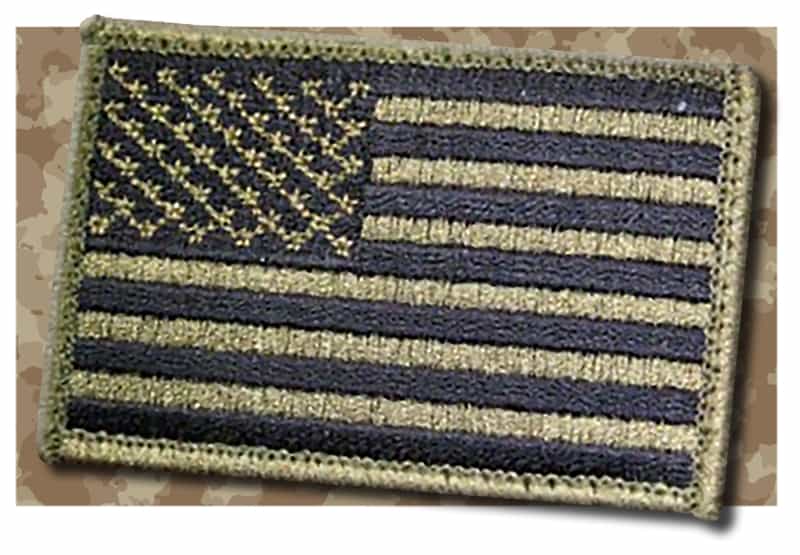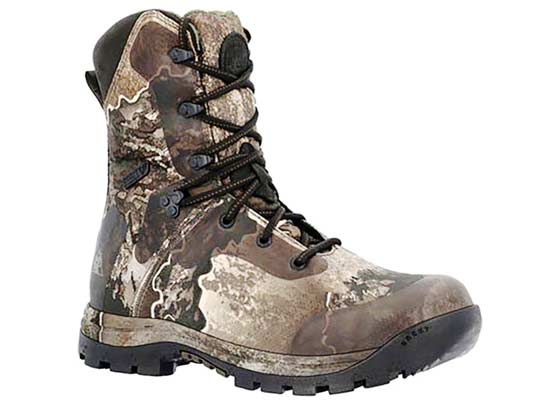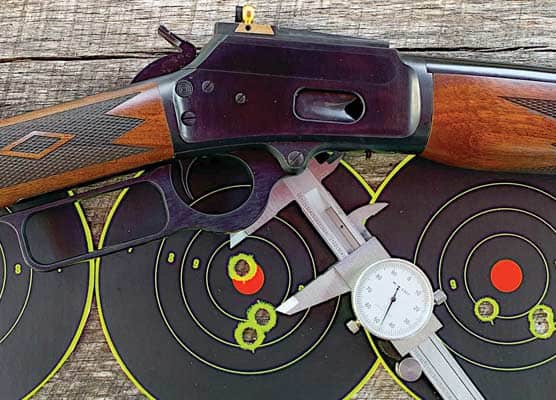Tap, Point, Tap
First My Country
This isn’t about politics. It’s not about oil, or WMD’s or who lied or didn’t lie about what. It’s sure as heck not about Democrats or Republicans or what passes for “truth” around Foggy Bottom. This is about something far more important — to me anyway. It is about young Americans, and in a greater sense, about the future of our nation.
Sitting in my “office” — a field pack between my boots and a Maxpedition “Operator Attaché” across my knees — I was scribbling notes for this January column while waiting out a flight delay in the Minneapolis-St. Paul airport. I thought the piece was OK — something light and lame about New Year’s resolutions. Two minutes after the announcement my departure gate had changed, that column was blown away with the breath, the words of young Americans.
I fell in behind about two dozen soldiers striding up the corridor, all fit and radiating energy, decked out in their neat but faded ACU camouflage. Several were NCO’s of equal rank, but their natural leader was obvious: a black sergeant of medium height; one of those guys whose torso forms a V-shaped wedge of muscular shoulders tapering down to a narrow waist. Even leading, he carried on a constant stream of positive conversation with those following him.
Reaching a junction, he stopped suddenly, spotting four other soldiers in ACU waiting for them. One of them, a big, squarely built black sergeant stepped forward. He and The Wedge burst into broad smiles. As I watched, they reached up and tapped the U.S. flag patches on their sleeves with two fingers, then pointed at each other, and then tapped their own chests. They quickly came together, shook hands, dropped their bags and bear-hugged. Others repeated the same tap-point-tap drill and their own greetings. Of course, I had to know what that tapping and pointing was about. I introduced myself to Ray the Wedge and Big Ollie.
Tap, Point, Tap
“It’s just something we started doing in our outfit last time in Iraq,” Ray explained, a little sheepish. “When we touch the flag, it means First, my country. When I point, that’s Then YOU, my brother soldier. Then, Me.”
“It’s not that simple,” he said. “There’s a lot more, but in combat it’s like this: All of us, none of us is as important as America, and what we do as soldiers. Then, my brother soldier is always going to come before me. That’s the way it has to be for me and for them too. I get hurt, I get killed, that’s not so important. My country, then my brother soldier, then me. Oh, man, it’s hard to explain.” Maybe it is to others, I told him; not to me.
In those seconds, my mind had flashed back months, and then years. Months, to watching two young Marines “banging knuckles” and murmuring “DFY, bro’.” They too explained, and they too were a bit embarrassed telling a stranger. It meant “Die For You, brother,” and it wasn’t just something they just said – it was a credo they lived by. Years, to some small-unit cross-border ops when things had gone wrong, horribly wrong, and men from other teams, dead and living, had been left behind. We began joining hands before each mission, swearing we would never leave each other behind; that if the situation came down to it, we would all go down together. Together.
Ray scanned my battered boots and pack; did kind of a “scar survey” on me and then peered into my eyes.
“I ’spect,” he said, “You might know something about that, mister.” He excused himself and stepped away. I sat with Ollie.
“Really,” Ollie confided, “He started that in Iraq, and we all got behind it. It helps remind everybody what’s important and who we are.” He laughed, “Now lookit my boy, Ray! I’m older and senior, but he is The Man, you know?”
Ray was passing down two rows of seated soldiers, stopping before each one, leaning down or kneeling, touching shoulders or knees, asking “You good? Everything OK at home? Got all your gear? Ready to get your head back in the game? Good!” The looks exchanged between them were redolent with respect, resolve and compassion.
“See,” said Ollie, “He just naturally does what others have to be taught to do. In Iraq, he said we have to tell our people that first, we are American soldiers, and we are America to these (Iraqi) people. We got to do what’s right no matter what. Second, any of us or all of us would die for any other fellow soldier. He made them believe it. We grew up close to each other, and I can tell you this: he sure didn’t learn it on the street.”
Brooklyn To Baghdad, Queens to Karbala
Ollie explained he and Ray came from similar but separate “‘hoods” in New York City. They enlisted after 9-11, as he said, “Ten percent because of 9-11, you know, like You can’t do that to us! ; 90 percent because of we gotta get offa these streets and make something out of ourselves.” Now, he said, “It’s one hundred percent about being Americans, and being soldiers, and having values we never got on the street. Like, I never knew there was anything worth dying for before I went Army.” Ray had approached and overheard those last lines.
“Hey, I never knew
what America was until I went to Iraq.”
“Hey, I never knew what America was until I went to Iraq,” he said. Ray explained that until he joined the Army, the furthest he had traveled from New York City was Bayonne, New Jersey — “Not exactly seeing America, you know? Everything I know about America, I learned from them,” he said, waving at his troops. “All kinds of people from all kinds of places, all Americans believing in and leaning on each other.” He paused, looking suddenly older than his years.
“And everything I know about freedom, I learned in Iraq, from seeing people who didn’t have it — and helping to give it to them.” The muscles in his jaws tightened.
“My soldiers? My country? Freedom? Damn right I’d die for them.”
I have read and heard many times over the years an army should reflect the best values of its country. It is mid-September as I write this, and if the media is to be believed, America is deeply and bitterly divided as we stagger and stumble toward November’s general elections. As I see it, there is no reasoned debate; only rancorous demonizing; patriotism smothered by political platitudes; media and money overshadowing meaning and morals.
I wish for a country which reflects the best values of its army.
Connor OUT



